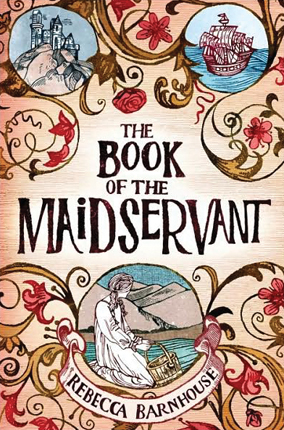Full Text Reviews: School Library Journal - 11/01/2009 Gr 7–10— Stories about pilgrimage have caught the imagination of readers since the days of Chaucer, and this one is based on the The Book of Margery Kempe , from the early 1400s and considered to be the first autobiography published in English. Barnhouse creates a lively protagonist in the character of Johanna, Lady Margery's serving girl. Unnamed and much maligned in the medieval account, Johanna takes on a life of her own here, recounting the hardships of the journey as she accompanies her difficult and loudly pious mistress to Rome. The sights, sounds, and deprivations of travel in the late Middle Ages—blistered feet, bug-infested beds, rain-soaked wool cloaks, moldy food—are all brought vividly to life along with the unlikely traveling companions who band together for protection but are constantly on one another's nerves. Above all, the story is Johanna's, and it constantly points out the vulnerability of a peasant girl whose survival depends in equal parts on luck, wit, and exhausting labor. In the end, she reveals a few secrets of her own character that will have today's young readers feeling a kinship with her. Pair this story with Kevin Crossley-Holland's Crossing to Paradise (Scholastic, 2008), include it in a unit on the medieval world or The Canterbury Tales , or simply suggest it as a rousing adventure tale and coming-of-age story.—Connie C. Rockman, Stratford Library Association, CT - Copyright 2009 Publishers Weekly, Library Journal and/or School Library Journal used with permission. Bulletin for the Center... - 01/01/2010 Johanna hasn’t been much help around her father’s farm or her married sister’s household, so she is hired out to Margery Kempe, a town woman notorious for her noisy piety. When Kempe sets off on a pilgrimage to Rome, Johanna must naturally accompany her, but it comes as an awakening that she must wait not only on her mistress, but all members of the party. Johanna’s experience is truly one of suffering rather than service, and as the other pilgrims lose patience with Kempe’s outbursts of prayer, weeping, and sermonizing, they vent their anger on Johanna. Abandoned en route by Kempe, Johanna makes her own difficult way to Rome, where she reinvents her life, relinquishing the desire to return home and settling abroad with a new “family” of true friends. The pilgrimage story has its usual road-trip appeal, and Johanna makes for an interesting contrast with the high-born heroine of Temple’s The Ramsay Scallop (BCCB 4/94). Barnhouse keeps her own counsel on the actual piety of the historic Margery Kempe, on whom the tale is based. However, she makes a compelling case for the notion that the overwhelming challenge of being associated with so eccentric a person—particularly in a fifteenth-century atmosphere of religious conformity—is what fashions fictionalized Johanna into a genuinely sympathetic figure. Closing notes comment on Kempe and references to the maidservant in her autobiography. EB - Copyright 2010 The Board of Trustees of the University of Illinois. Loading...
|



